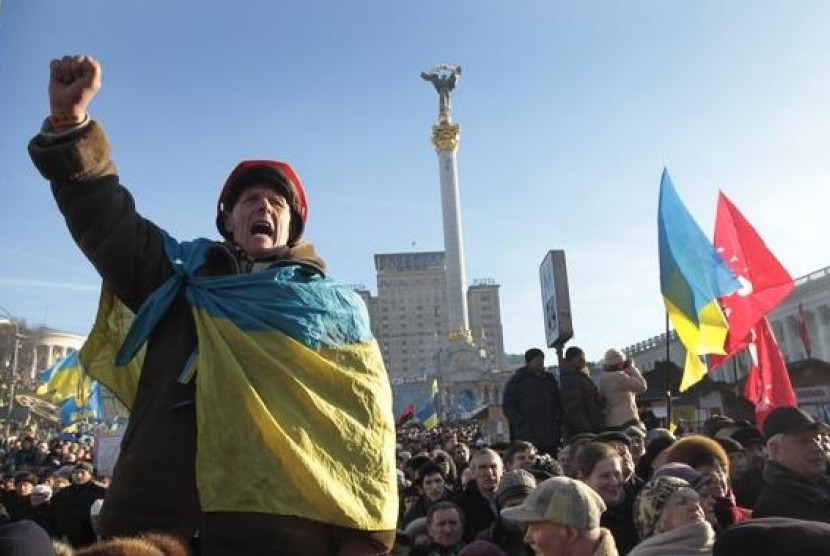REPUBLIKA.CO.ID, WARSAW -- Four former Soviet satellites in central Europe said Tuesday they were "shocked" by Russia's actions in the Ukraine crisis as it brought back memories of Moscow's clampdown on protests in their countries during the Cold War.
"The Czech Republic, Hungary, Poland and Slovakia are shocked to be witness to a military intervention in 21st-century Europe that resembles their own experiences in 1956, 1968 and 1981," the four countries' leaders said in a joint statement.
It was published after President Vladimir Putin said Russia had the right to use "all means" to protect its citizens in Ukraine but denied he had already deployed troops there.
But he also made clear that Moscow had no intention of loosening its new grip on Ukraine's Crimea peninsula.
Leaders of the four EU countries regularly meet as part the so-called Visegrad group to discuss security and energy issues as well as their partnership with eastern European countries, such as Russia and Ukraine.
They said Russia's "latest military actions are a violation of international law and create a new dangerous reality in Europe".
After the end of World War II and until the fall of the Berlin Wall, the four countries were part of the Soviet bloc and Moscow crushed pro-democracy movements in Budapest in 1956 and in Prague in 1968.
In Poland, the Kremlin abstained from direct military intervention in 1981 and left it to the country's communist leaders to impose martial law to crush anti-communist opposition.
Poland's Prime Minister Donald Tusk was joined at the Visegrad meeting by his counterparts Bohuslav Sobotka of the Czech Republic, Hungary's Viktor Orban, and Slovakia's Robert Fico.
While criticising Moscow's role in Crimea, Tusk said the international community's pressure on Moscow had at least temporarily led to a climbdown from Russia.
"It seems that for now the worst-case scenario, also the most dangerous for Poland, has maybe been brought to a halt. Is it durable? That no one knows," he told reporters in Warsaw after the United States toughened its stance against Moscow by suspending military cooperation.


